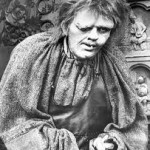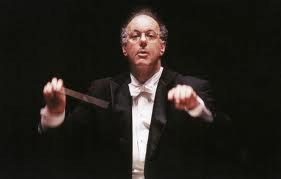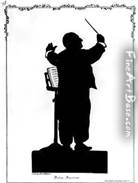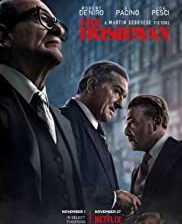- Two Thanksgiving Thoughts for the ACAPosted 10 years ago
- Shop til you Drop at the Healthcare Marketplace Part 2: Frustration!Posted 10 years ago
- An Early Casualty in the Affordable Care FightPosted 10 years ago
- Some Good News for a ChangePosted 10 years ago
Post-Mahleria at Carnegie Hall by Curtis Rittenhouse
The Post’s plea for relief from Mahleria got an unexpected endorsement yesterday from the stage of Carnegie Hall when Leon Botstein, the Conductor and Music Director of the American Symphony Orchestra, declared that the Mahler revival had gone way too far. “He {Mahler} is sucking the air out of the room. There are other interesting composers from his time. We just don’t hear them at all because of the current obsession with Mahler and his music.” Then, concluding his remarks before leading a concert performance of Franz Schmidt’s opera Notre Dame, he pronounced the opera at hand was ‘as good as anything put before the public in twentieth-century opera.’
Notre Dame, finished in 1908, was getting its American debut.
Two and a half hours later, the performance proved the conductor right. Schmidt, an Austro-Hungarian composer who died at the outset of World War II, has been totally neglected outside German-speaking countries. His music was mis-used by the Nazis during World War II, which has sealed his post-War neglect. I heard Fabio Luisi conduct Schmidt’s Fourth Symphony with the Philadelphia Orchestra several years back. Interest in this period seems to be on the increase. The atonality of Schoenberg and the Mahler revival eclipsed all other German composing for many decades. Then there was an appreciation of the composer-victims of German anti-Semitism and then those of the Genocide and Holocaust.
Now we arrive at ‘all the rest.’ Schmidt (1874-1939) is a first-rate technician, tonal, chromatic, but without the sweep of Richard Strauss, the Technicolor of Korngold or the back story of Mahler. He was a cellist, music educator and poor promoter of his own art. He begged Mahler to perform his opera and then bad-mouthed him when he delayed. At the end, he accepted a commission from the Nazi government to write a piece about German culture, but did not complete it.
What the audience heard in Carnegie Hall went far in proving Maestro Botstein’s assertion about the work and the composer. A decent libretto, memorable moments, vocal and instrumental challenges amid a lot of lust and religion— how could you go wrong? It was the Hunchback of Notre Dame story with Quasimodo, now a secondary character, set against the sinned-against gypsy Esmeralda. The American Symphony played admirably if not in the league with the Vienna Philharmonic, where Schmidt played the cello for two decades. The voices were all good with Steven Powell outstanding in the longest part of the Archdeacon of Notre Dame.
 The Intermezzo, which Schmidt wrote first, and added the rest of the opera later(!), sticks in your memory like the best of Italian Verismo. There are a few long stretches of declamation but given Schmidt’s unusual orchestration, nothing in this opera outstays its welcome. I would love to see Notre Dame staged, understanding that, like Samson and Delilah, there are significant challenges and compromises to be made.
The Intermezzo, which Schmidt wrote first, and added the rest of the opera later(!), sticks in your memory like the best of Italian Verismo. There are a few long stretches of declamation but given Schmidt’s unusual orchestration, nothing in this opera outstays its welcome. I would love to see Notre Dame staged, understanding that, like Samson and Delilah, there are significant challenges and compromises to be made.
Kudos to Professor Botstein, who is also the President of Bard College, for presenting this unjustly neglected work to a curious and receptive public. One cannot live on La Traviata or Götterdämmerung alone. One should not even try when Notre Dame is around.
Curtis Rittenhouse
For original piece on Mahleria please access http://pennsquarepost.com/wordpress/?p=312









